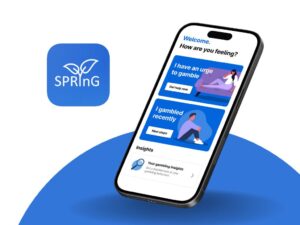
Flora Matheson
Adjunct Research Professor
| Department: | School of Industrial Design |
| Degrees: | BA (Hon), MA, PhD Sociology; Unity Health Chair, Homelessness, Housing, and Health; |
| Website: | https://justiceandequitylab.ca/ |
Biography
Flora Matheson is a graduate of the University of Toronto’s Department of Sociology where she obtained her Doctor of Philosophy (Ph.D.), specializing in Crime, Deviance, and Socio-legal Studies. Her long-standing interest in the influence of the social determinants of health – especially their bearing on historically made-vulnerable and underserved populations – led her to post-doctoral studies at St. Michael’s Hospital where she explored neighbourhood-level influences on gender differences in health. Early in her career, Flora embedded community-engagement into her research toolkit, thus ensuring that co-design became the engine of, not only the research, but also any solutions generated, developed, implemented, and evaluated.
As a graduate student, Flora was involved in volunteer and correctional work. With the Centre for Addiction and Mental Health she did creative activities with patients. She worked with the Ontario Board of Parole during her graduate studies and volunteered as a parole officer with Correctional Service of Canada – offering her opportunities to support clients on community supervision, visit federal penitentiaries, and attend parole hearings. During her nearly 10-year secondment with the Correctional Service of Canada, Research Branch (Addictions Research Centre), she interviewed women in federal custody, listening to their experiences and providing guidance to support their reintegration into society. Her extensive background in both sociology and health sciences coupled with community participatory engagement brings a unique perspective to the study of urban health, particularly in inner-city environments where mental health and addiction intersect with crime and social justice.
Research
Flora’s research is positioned at the intersection of health and social sciences and builds on 20 years of sociological research focused on gender, justice, health, and social inequities. It addresses the health and social challenges associated with (a) problem gambling, poverty, and homelessness, and (b) complex needs — brain injury, mental health and substance use, homelessness, and criminal justice involvement. Flora’s work is community-based, engaging individuals with lived experience and the service providers who support them, with a strong emphasis on practice and policy to improve lives affected by social inequities.
Flora pioneered the first Canadian correctional data repository to examine the impact of traumatic brain injury on people in the federal criminal justice system. Flora also helped establish the Breaking the Cycle Solutions Network, connecting researchers, policymakers, service providers, and individuals with lived expertise to improve lives by reducing social inequities among people experiencing criminalization.
She also pioneered research on problem gambling, poverty, and homelessness, co-designing a one-of-a-kind Gambling Addiction Program with community partners, specifically for people facing these challenges. Situated in a shelter, this program was a unique design in Canada and internationally. Flora also collaborated to create the SPRinG research app, designed to support recovery from gambling-related harms, addressing gender, health, and social inequities.
Research Projects
| The Catch-22 Conditions of Community Supervision: Understanding the Gendered Nature of Violations, Sanctions, and the Challenges of Compliance for People With a History of Traumatic Brain Injury | This project: (a) documents the challenges of managing court-mandated supervision conditions for people with brain injury and (b) generates evidence-based changes in community supervision policies, practices, and related community supports.
Funder: Social Sciences and Humanities Research Council Participatory Community-Based Project |
 |
|
| Breaking the Cycle of Incarceration: Solution’s Network | The Network: (a) generates solutions to support people at re-entry to the community from custody; (b) educates the public and professionals about the prevalence and implications of brain injury within correctional populations and settings; (c) advocates for greater equity, inclusion and support for this population.
Funder: Donor Support, St. Michael’s Hospital Foundation. Participatory Community-Based Project |
 |
|
| Assessing Mental Health and Substance Use Needs and Service Disruptions for People Released From Custody During COVID-19 | This project: (a) documents COVID-19-related mental health and substance use needs and service delivery, including disruptions and adaptations, for people released from correctional facilities during the pandemic and (b) provides recommendations for present and future pandemic plans, preparations and responses to better address the needs of this population.
Funder: Canadian Institutes of Health Research and the Ontario Ministry of Health Participatory Community-Based Project |
 |
|
| Self-Management in the Age of Complexity: An e-Health Tool to Support People Experiencing Gambling, Poverty and Homelessness | This project: (a) provides SPRinG – a co-designed (research) app to reduce gambling-related harms and (b) recommendations for safer gambling approaches, programs, and policies in Ontario.
Funder: Canadian Institutes of Health Research/Natural Sciences and Engineering Research Council of Canada Participatory Community-Based Project |
 |
|
| A Process Evaluation of the Gambling Addiction Program in Partnership With Good Shepherd Ministries | This project: (a) implements and evaluates a Gambling Addiction Program in a multi-service shelter setting tailored to the needs of people experiencing poverty and homelessness and (b) provides agency- and system-level recommendations for sustainability.
Funder: Ontario Trillium Foundation, Ontario Government Participatory Community-Based Project |
 |
|
Additional email – Flora.Matheson@unityhealth.to
Additional website – https://gamblingandpoverty.ca/